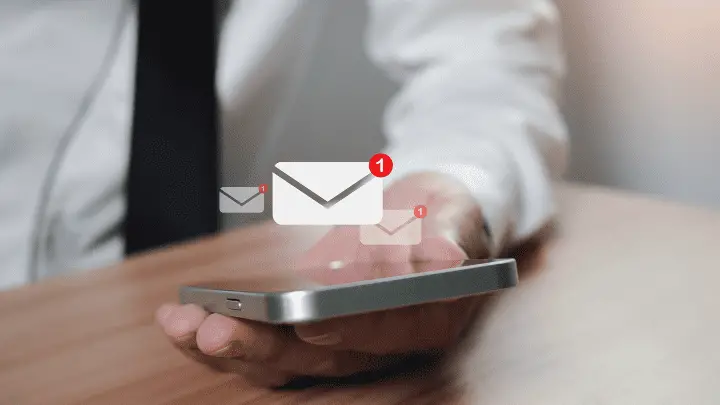A resignation letter serves as a formal announcement to your employer that you are leaving your job. In today’s fast-paced world, where emails fly faster than paper airplanes, the question arises: Can you email a resignation letter?
It’s natural to wonder about the etiquette surrounding such a significant professional step. This article is your compass for navigating modern workplace norms. I’ll dive into the dos and don’ts, the ins and outs, and everything in between when it comes to bidding farewell via email.
It’s time to make this part of modern work life easier to understand and manage by being clear, confident, and using digital tools effectively. All you need is your computer or phone keyboard, and we’ll figure it out together!
Can you email a resignation letter? Pros and Cons
Pros
1. Convenience and efficiency
Emailing your resignation letter is quick and convenient. You can send it instantly, especially if you work remotely or need to provide notice promptly. It eliminates the need for physical delivery or scheduling an in-person meeting.
2. Documentation and clarity
An email resignation provides a written record of your intent to resign. This documentation can be valuable for both you and your employer. It ensures clarity regarding your departure date and intentions.
3. Opportunity for careful crafting of message
Composing an email allows you to choose your words carefully. You can express gratitude, highlight positive experiences, and maintain professionalism. You have time to edit and revise your message before sending it.
Cons
1. Perceived lack of professionalism
Some employers may perceive an email resignation as less formal than a printed letter. It might be seen as less respectful or less serious. However, this perception varies across different workplaces.
2. Absence of personal touch
Email lacks the personal touch of a face-to-face conversation or a handwritten letter. It may feel impersonal to some recipients. If you have a close relationship with your supervisor, consider discussing your resignation in person.
3. Risk of misinterpretation
Written communication can be misinterpreted. Tone and intent may not always come across clearly in an email. Be mindful of how your message might be received.
In summary, while emailing a resignation letter offers convenience and clarity, consider the workplace culture and your relationship with your employer when deciding the best approach.
Circumstances where an email resignation letter is acceptable
1. Geographical constraints or remote work situations
If you work remotely or are geographically distant from your workplace, email provides a practical way to communicate your resignation promptly. It ensures timely notice without delays due to physical distance.
2. Hostile work environments or uncomfortable situations
In cases where the work environment is unpleasant, toxic, or hostile, emailing your resignation can be a safer option. It allows you to maintain distance and avoid potential confrontations.
3. Time-sensitive resignations
Urgent situations, such as health emergencies or sudden personal matters, may require immediate resignation. Emailing ensures a swift notification to your employer.
4. Company policies and culture
Some companies explicitly allow or even encourage email resignations. Consider your organization’s policies and norms regarding resignation methods.
Remember that while email is acceptable in these circumstances, always strive for professionalism and clarity in your communication. Tailor your approach based on the specific context and your relationship with your employer.
Exploring the email resignation letter process

Transitioning out of a job gracefully involves careful consideration of communication methods. Here’s how you can navigate the process effectively:
1. Understanding the etiquette
Understanding etiquette is crucial when navigating the email resignation letter process. It ensures that your communication remains professional, courteous, and respectful.
Proper etiquette helps you leave a positive impression, maintain relationships, and uphold your reputation. By following established norms, you convey your seriousness about the resignation, express gratitude, and provide clarity.
Etiquette also helps you avoid misunderstandings and potential conflicts. Whether you’re resigning due to personal reasons or pursuing new opportunities, adhering to proper etiquette ensures a smooth transition.
This also reflects well on your integrity, character and professionalism.
2. Clarifying company policies
Clarifying company policies is essential during the email resignation letter process. Understanding your organization’s work ethics or guidelines ensures that you adhere to established norms. It helps you determine whether email resignations are acceptable or if a formal letter is required.
By clarifying policies, you avoid missteps and maintain professionalism. Some companies may have specific procedures for notifying HR or involving additional stakeholders. Being aware of these details ensures a smooth transition and demonstrates respect for organizational norms.
Remember, clarity on policies empowers you to make informed decisions and navigate the resignation process effectively.
3. Choosing the right timing
Choosing the right timing when composing an email resignation letter is crucial. Here’s why:
- Professional courtesy: Sending your resignation during a busy period or critical project phase may inconvenience your employer. Opt for a time when they can focus on your message.
- Notice period: If you’re providing the standard two-week notice, consider the calendar. Ensure your last working day aligns with the company’s needs.
- First thing in the morning: Mornings are ideal for sending professional emails. It ensures your message is among the first they see.
- Avoid Fridays: Resigning on a Friday may disrupt weekend plans or cause unnecessary stress. Midweek is preferable.
- Before important meetings: Avoid sending your resignation just before crucial meetings or deadlines.
Remember, timing impacts how your resignation is received, so choose wisely.
4. Crafting a polished email
Whether you’re transitioning to a new opportunity or simply moving on, following these steps will help you maintain professionalism and leave a positive impression:
Choose an appropriate subject line
Start creating your email resignation letter by choosing an appropriate subject line that describes your message. This is important because the subject line is often the first thing a recipient notices in an email.
Consider including a subject line such as “Notice of Resignation” or “Resignation as of [date].”
Open with a professional greeting
Starting your email with a professional greeting can help you set a positive tone for the rest of the content. Include a salutation such as “Dear,” followed by your supervisor’s title and last name.
Consider including a brief sentence that wishes them well. For example, you might say something like, “I hope you’re doing well” or “I hope you’re having a nice day.”
Explain the purpose of your email
Be sure to include an explanation of the purpose of your email in the next sentence. State the exact position you’re resigning from.
Consider providing a reason for leaving (optional)
While not mandatory, you can briefly mention the reason for your departure. Keep it concise and professional.
Indicate when your employment ends
Specify your last working day. This helps with planning and ensures a smooth transition. If you’re providing the standard two-week notice, mention the exact date.
Express your gratitude for the opportunity
Take a moment to express gratitude for your experience and learning opportunities with the company. You can also highlight the positive aspects of your tenure.
Offer to assist with the transition
Show your commitment to a smooth handover by offering to assist during the transition. For example, you can mention training your replacement or documenting processes.
Proofread your email
Before hitting send, proofread your email carefully. Check for errors in spelling, grammar, and formatting.
FAQs
How should you address the recipient in your resignation email?
Address the recipient using their preferred title and surname, maintaining a respectful tone in your salutation. For example, “Dear [Recipient’s Name],”
Can you resign via email if your company has no specific policy regarding resignations?
Yes, you can resign via email even if your company doesn’t have a specific policy regarding resignations. However, following general professional etiquette and ensuring your email is polite and professional is advisable.
Is it appropriate to mention the reasons for resigning in the email?
In the email, it’s unnecessary to provide detailed reasons for resigning. A brief and professional statement expressing your intent to resign and gratitude for the opportunity is sufficient.
Should you send a hard copy of your resignation letter and the email?
Sending a hard copy of your resignation letter in addition to the email is not mandatory, especially if your company does not require it. However, it can be a thoughtful gesture, particularly if you’re in a senior position or have a close relationship with your employer.
What if you don’t receive a response to your resignation email?
If you don’t receive a response to your resignation email within a reasonable timeframe, consider following up with a polite reminder. If necessary, you can also contact your supervisor or HR department to ensure your resignation has been received and processed.
Can you retract your resignation after sending the email?
Whether you can retract your resignation after sending the email depends on your company’s policies and the circumstances surrounding your resignation. It’s best to consult with HR or your supervisor to discuss the possibility of retracting your resignation and any potential implications.
Wrapping up
In conclusion, the question of whether you can email a resignation letter is answered with a resounding “yes.” In today’s digital age, email has become a widely accepted means of professional communication, including for important matters like resignations.
By following the guidelines this article outlines, you can confidently and professionally navigate the process. Remember to adhere to company policies, maintain a respectful tone, and ensure your email is clear, concise, and error-free.
While the delivery method may have evolved, the principles of courtesy and professionalism remain constant. So, whether you’re embarking on a new opportunity or transitioning to the next chapter of your career, rest assured that emailing your resignation letter is acceptable and appropriate.
You can learn more about how to quit a job over text.
Thanks for reading.






